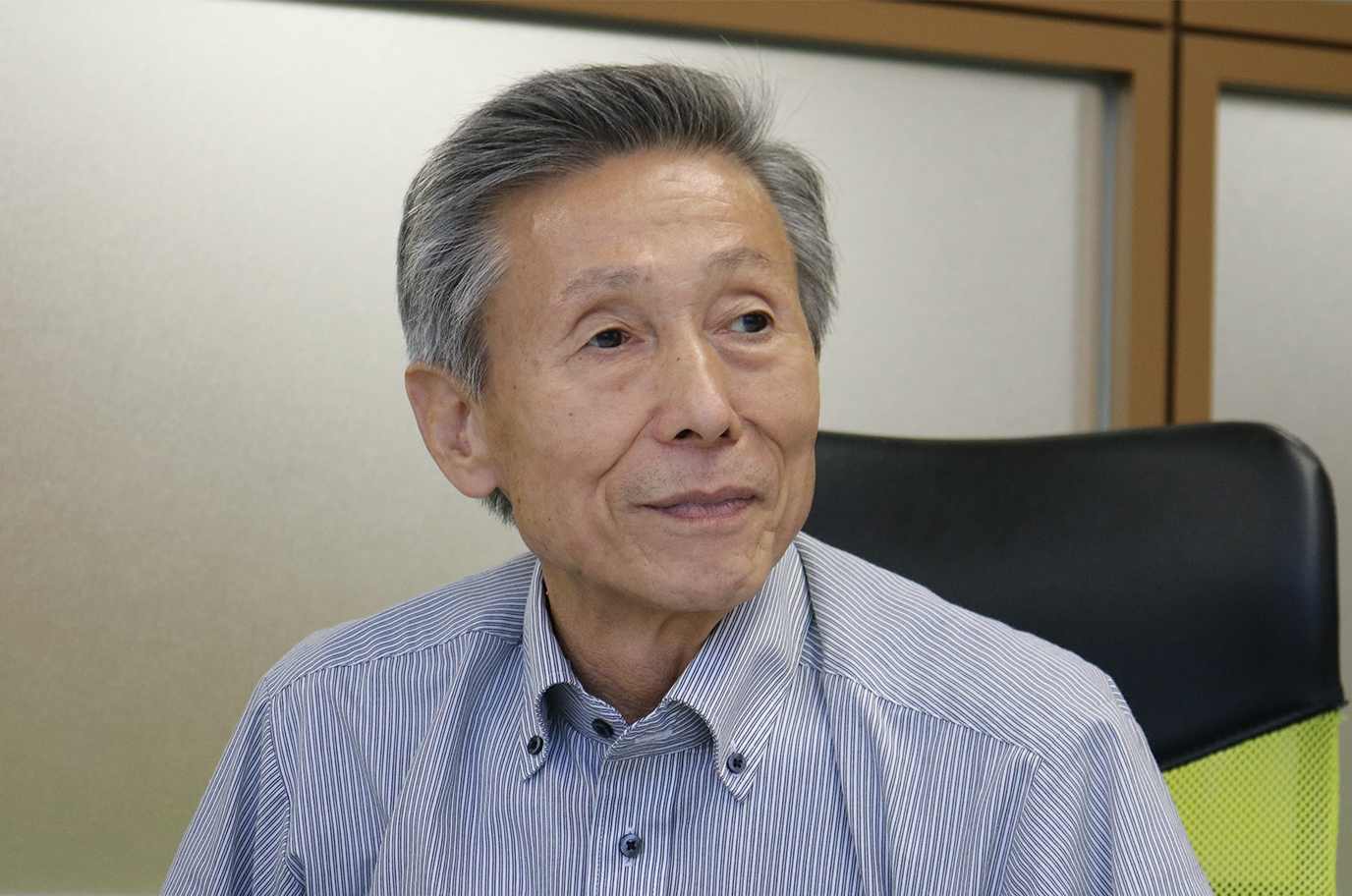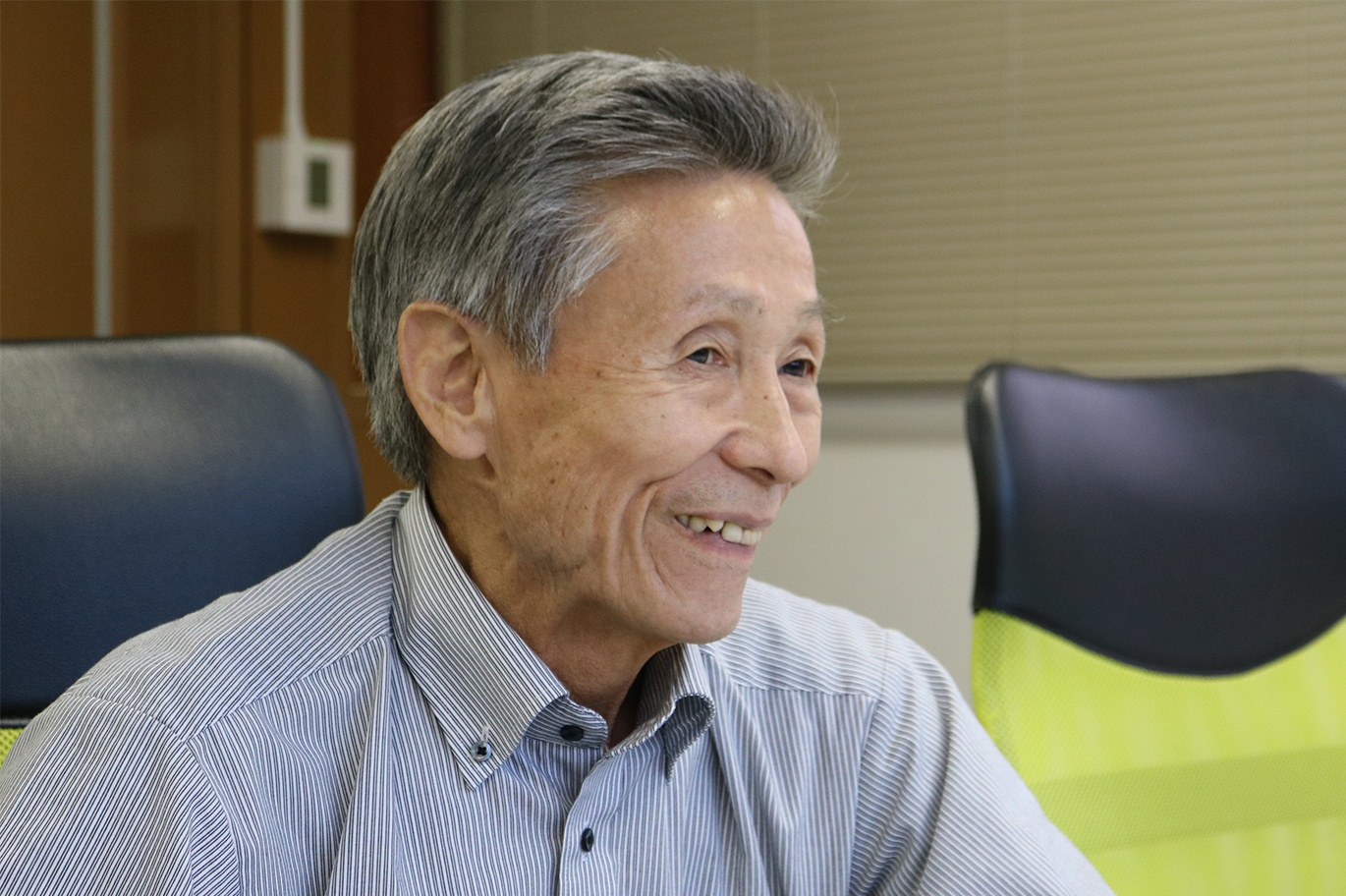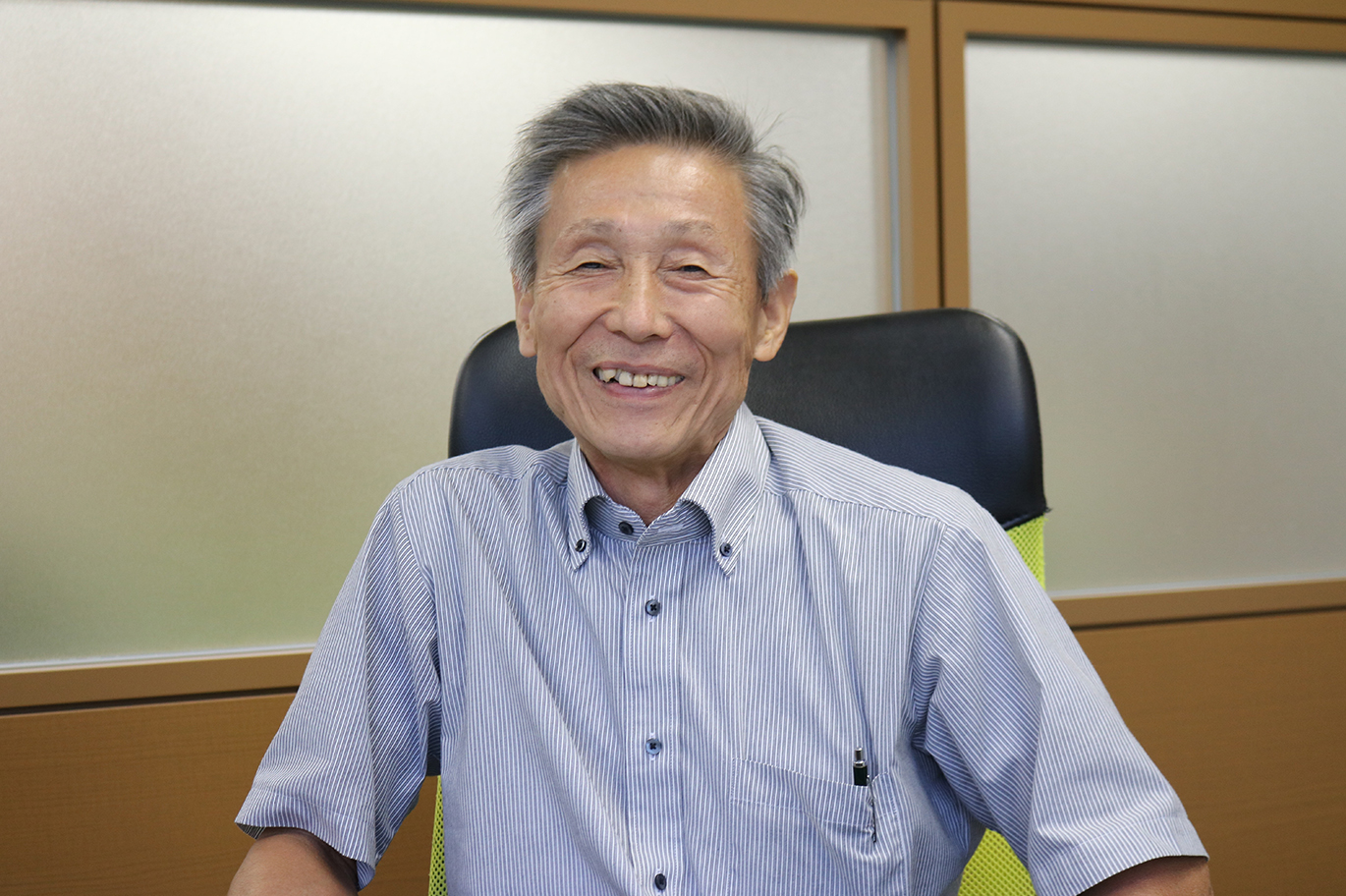"Cool Adult" columns
vol.07
Mr. Atsuto Sawakami
Chairman of Sawakami Holdings, Inc.
Born on 28th March, 1947
Making donations will revitalize Japan that is going through a maturing economy.

Mr. Sawakami founded Japan’s first independent investment trust management company from his passionate desire to help ordinary citizens to build assets through professional long term investments. He started “Sawakami Fund” in 1999. Since then, together with his team that shares his belief in long term investment, the fund has recorded excellent performance for over 20 years with their innovative style of not using brokerage firms to sell their fund.
Moreover, with the profit the company gained through cutting costs, Mr. Sawakami thought he should contribute to create a better society and established foundations such as Sawakami Foundation, Okane-wo Mawaso (Let’s create a healthy cycle for money) Foundation, and so on. He has energetically acted to create a better society by cycling money back to the public through donations and nonprofit activities.
Let’s make a better world through long term investment.
Sawakami Fund has now grown to become a major mutual fund, managing over \300 billion in net assets. As a founder of the first investment trust management company to sell its funds without an intermediary, Mr. Sawakami has gone through a number of obstacles to build this current state. However, he says it all started from his migrant work at Switzerland when he was in his 20s.
When he was 17, his father who had been an entrepreneur passed away, leaving behind a big burden of debt on his shoulders. Desiring to pay back the debt as soon as possible, Mr. Sawakami decided to go to Europe where the salary was double that of Japan at the time. He registered himself to a doctor course at a graduate school in Geneva, Switzerland and put up a small ad in a newspaper saying “A Japanese student seeking for a job.” He went for an interview at the first company that responded to his ad and got accepted which happened to be the world leading asset management company, Capital International.
That was where he first learned of the world of long term investment which fascinated him. He worked 15 to 16 hours every day and before he knew it, he had become an analyst and a fund advisor. By then, he had managed to pay back all of his father’s debt and instead had in his hands a treasure that would become his life work, “long term investment”.
“Select companies that are indispensable for the society and support them continuously. This is how the money gets invested and fulfills its function. As a result, you contribute to create a better society and receive investment returns as a “thank you” in return. This is the principle of long term investment which I have learned thoroughly in Switzerland in the 70s and have continued ever since. This is fundamentally different from greed oriented short term investment that is a win or lose game, fighting over a pool of money within the market.”

What lies beyond achieving financial independence
Support excellent companies that are needed by people and are indispensable to the society by buying their shares when they are cheap. Sell little by little when the share price rises. If you persistently continue doing this, the fund will perform well without a stretch, increasing value of the assets for its investors.
Increasing number of investors of Sawakami Fund has also accumulated assets by continuously investing little by little over the past 20 years. “Financial Independence” is a stage where the person no longer needs to worry about his/her financial state as a result of returns earned from investments.
“Reaching financial independence is the first stage. You will no longer need to worry about living. Once the money reaches a certain amount, the money will start to grow on its own like a snowball. Then you spend that money for the society in a cool manner. That is the second stage. Children will see such grownups and will start dreaming about becoming like them. That is the third stage. The society will be so much happier if such cycle were to be created. Long term investment will allow us to expand such a world. Our company was not making money for the first 9 years since establishment. However, from the moment we recorded net profit, we acted to use the company’s profit for the benefit of the society. We do not personally indulge in luxury. The salary of our employees including myself is only slightly higher than the average. Instead, we enjoy the luxury of returning back profits from long term investments to the society. As people say, money comes and goes. “
The key issue here is how to use the money in a cool manner. Mr. Sawakami established Sawakami Opera Foundation, a public interest incorporated foundation and has invited and organized authentic Italian opera concerts in Japan and has also supported Japanese opera singers and musicians to study abroad. The foundation focuses on spreading the opera culture by means such as organizing opera concerts all across Japan. In addition, Mr. Sawakami is the Representative Director of Okane-wo Mawaso (Let’s create a healthy cycle for money) Foundation, which is another public interest incorporated foundation he created. This foundation operates a platform for individuals to donate to nonprofit organizations that are acting in the fields of Children, Sports, Local community and Traditional culture. The foundation aims to create a cycle of money to flow towards solution of various social problems while placing importance on the connection between donors and nonprofit organizations.
“For both athletes and musicians alike, it is only the top few that get highly paid. Most of them are struggling to earn a living but are continuing simply because they love what they are doing. However, there is a point where they can no longer continue regardless of their enthusiasm. Someone needs to help them as otherwise neither music nor sports can sustain. Some people say that as Japan is going through a maturing economy, consumption should shift from goods oriented consumption to event oriented consumption. The truth is, in a maturing economic society, people should be spending money for culture, education, art, sports, technology, donations and volunteering. The Japanese government is now trying to make companies build factories by lowering its interest rate. This, however, is not easy as no one buys goods any more. They are misjudging where the money should be spent. In Japan, we need to focus on creating industries in the area of “event driven” consumption.”

Donation is the answer for a maturing economy to survive
Mr. Sawakami says that as Japan, after experiencing high growth, is now going through a maturing economy, donation will become even more important as a means to spend money going forward.
“I was in Europe during the 70s and 80s and saw it with my own eyes when their economy was going through a maturing economy. It was a tough time with a lot of people turning poor. I think from this experience, at least some of the people learned that ‘This economy is not sustainable unless the wealthier cycles the money back, which would eventually hurt myself as well.’ Nonprofit organizations which did not exist then have increased dramatically over the past 30 years. Now, they have grown to constitute 7 to 9 per cent. of total employment in the US. I believe that the society will change just by having more people understand that the economy and the society could change through donations.”
Whether one decides to donate or not is up to that person’s value or will. Some people will and some people won’t. However, Mr. Sawakami says when Japan was poor, people used to cycle money to each other.
“The economy grows in the area the money is spent. If you donate to an organization that acts in the area of poverty, conservation of nature, sports or art, the money will be consumed immediately without going to savings. As a result, the economy picks up immediately. For example, if everyone were to donate 3 per cent. of their savings, the Japanese economy will grow by 5 per cent. That would in the end financially benefit the donor. Given that keeping the money as bank deposits does not yield any interest now, people should cycle the money back to the real economy. It is important for people to have this image.
Atsuto Sawakami
Born on 28th March, 1947 in Aichi Prefecture. During 1971 to 74, he was Analyst / Fund Advisor at Capital International in Switzerland. During 1980 to 1996, he acted as Japan Representative of Pictet Bank, Switzerland. He established Sawakami Asset Management Inc. in 1996 and started Sawakami Fund in 1999. Currently, as the Chairman of Sawakami Holdings, Inc., he is actively promoting the concept of long term investment and is also involved in its foundation activities to be the model case for “cool way to spend money”.
